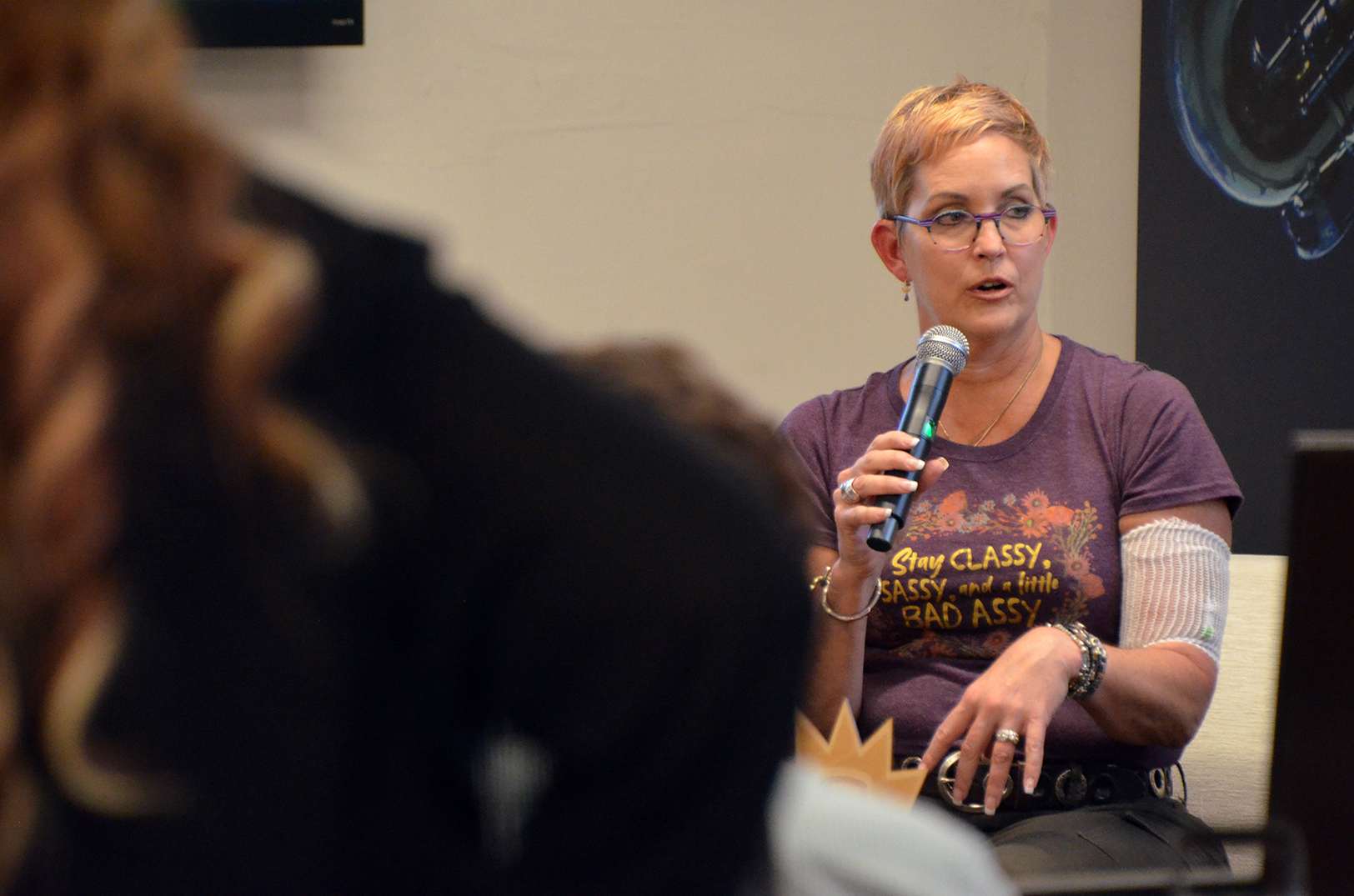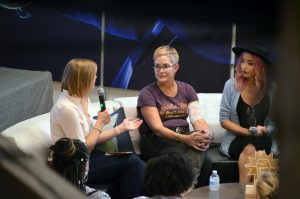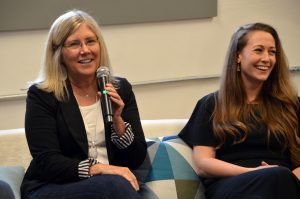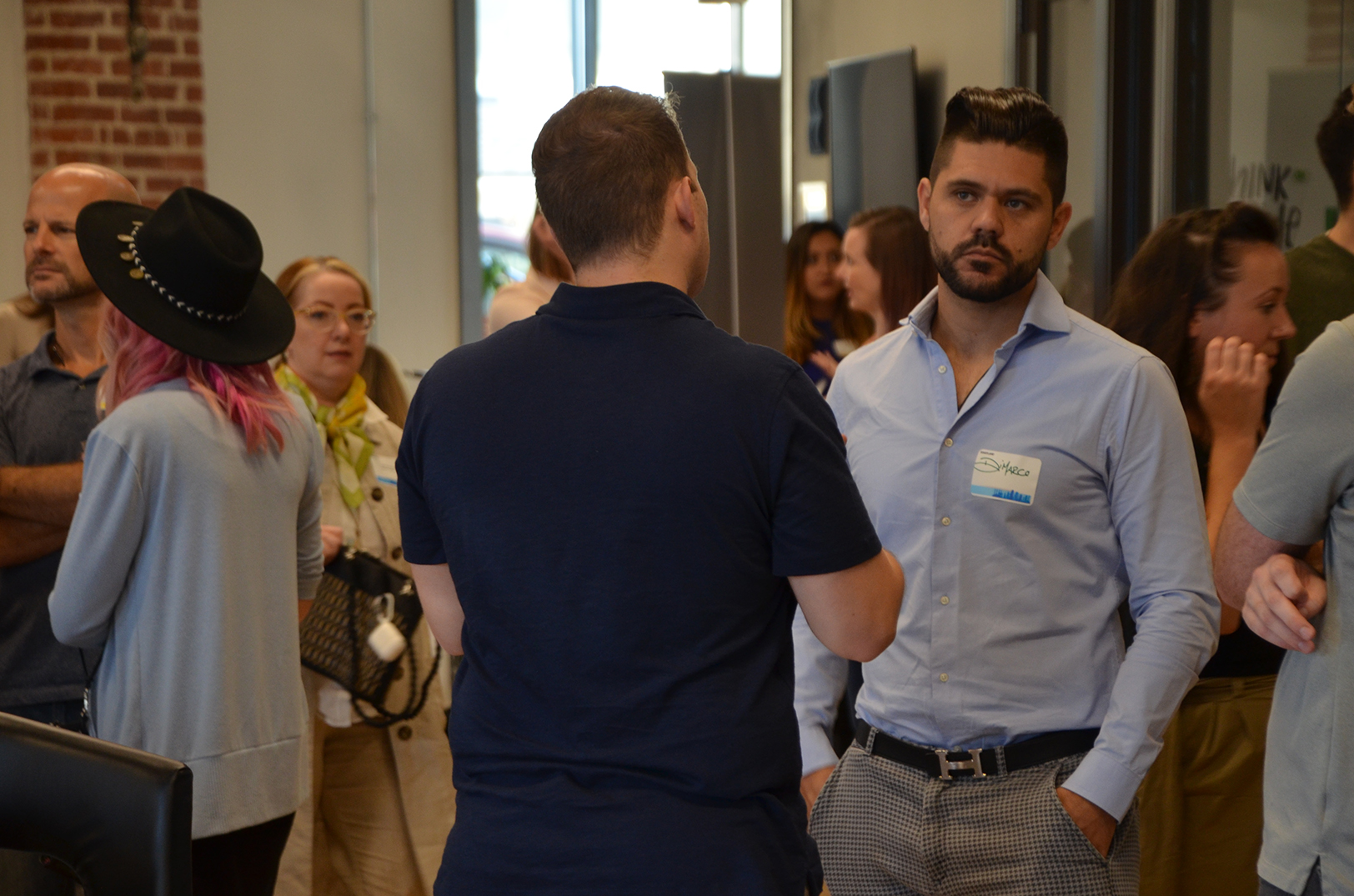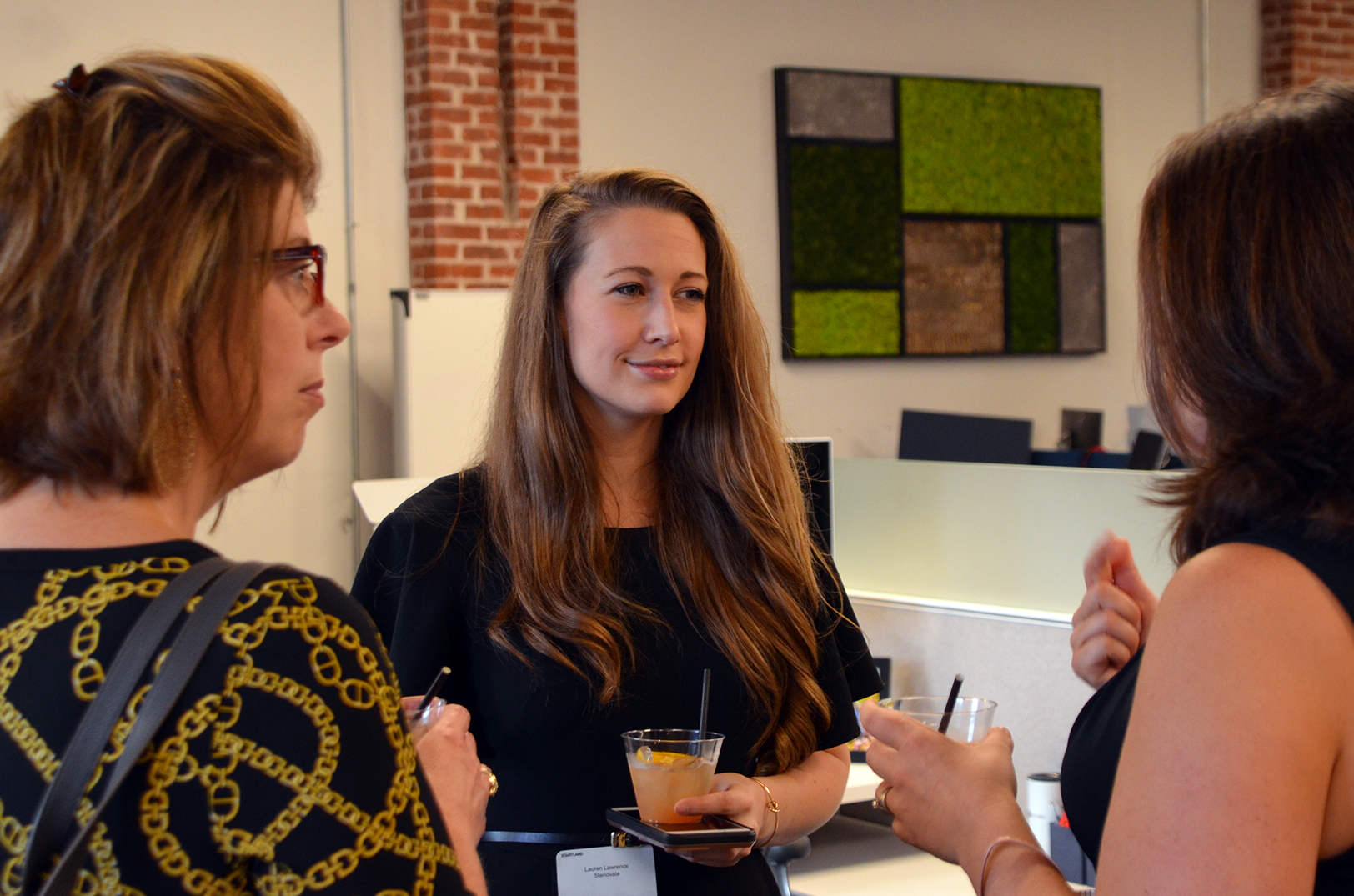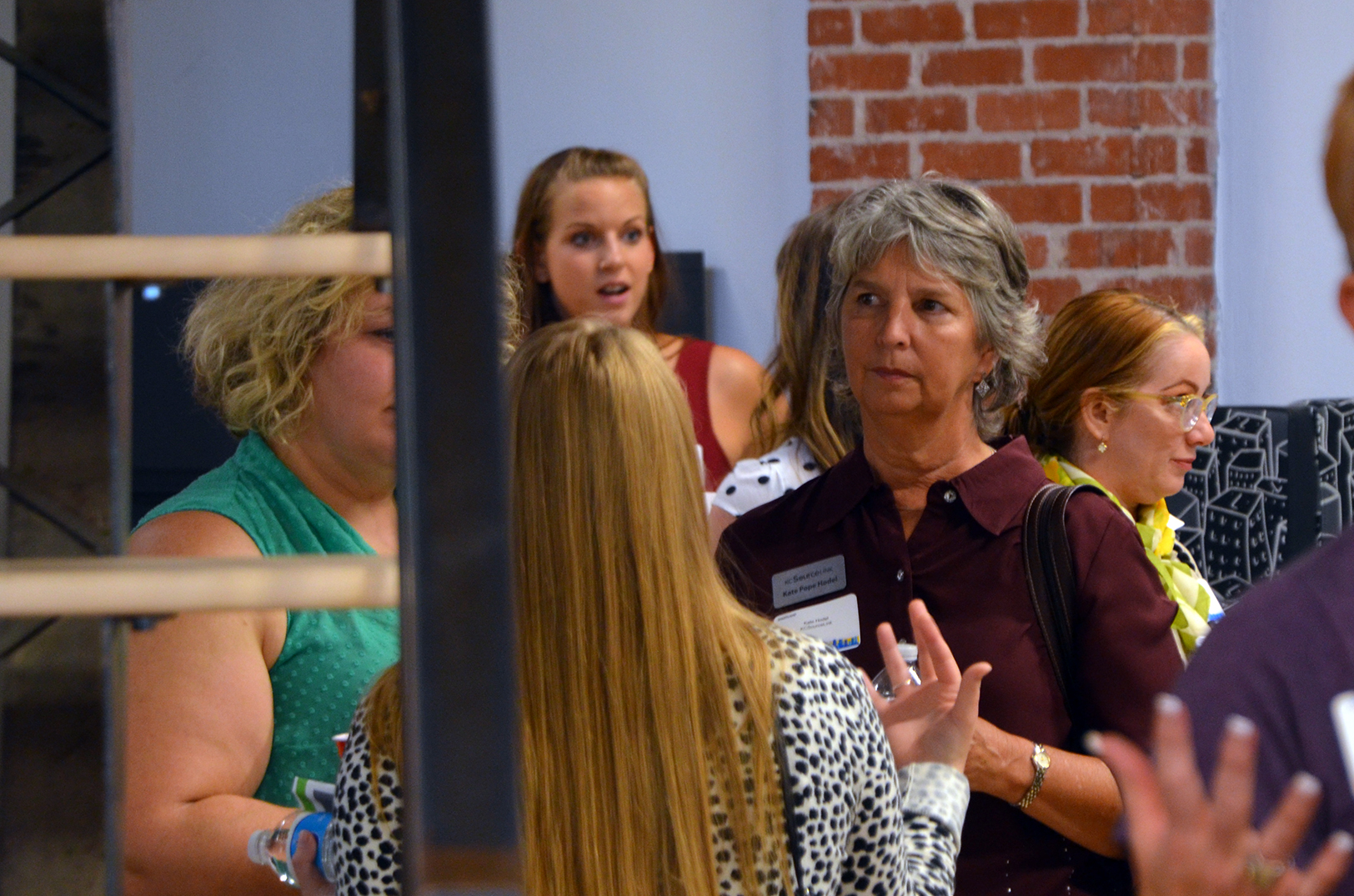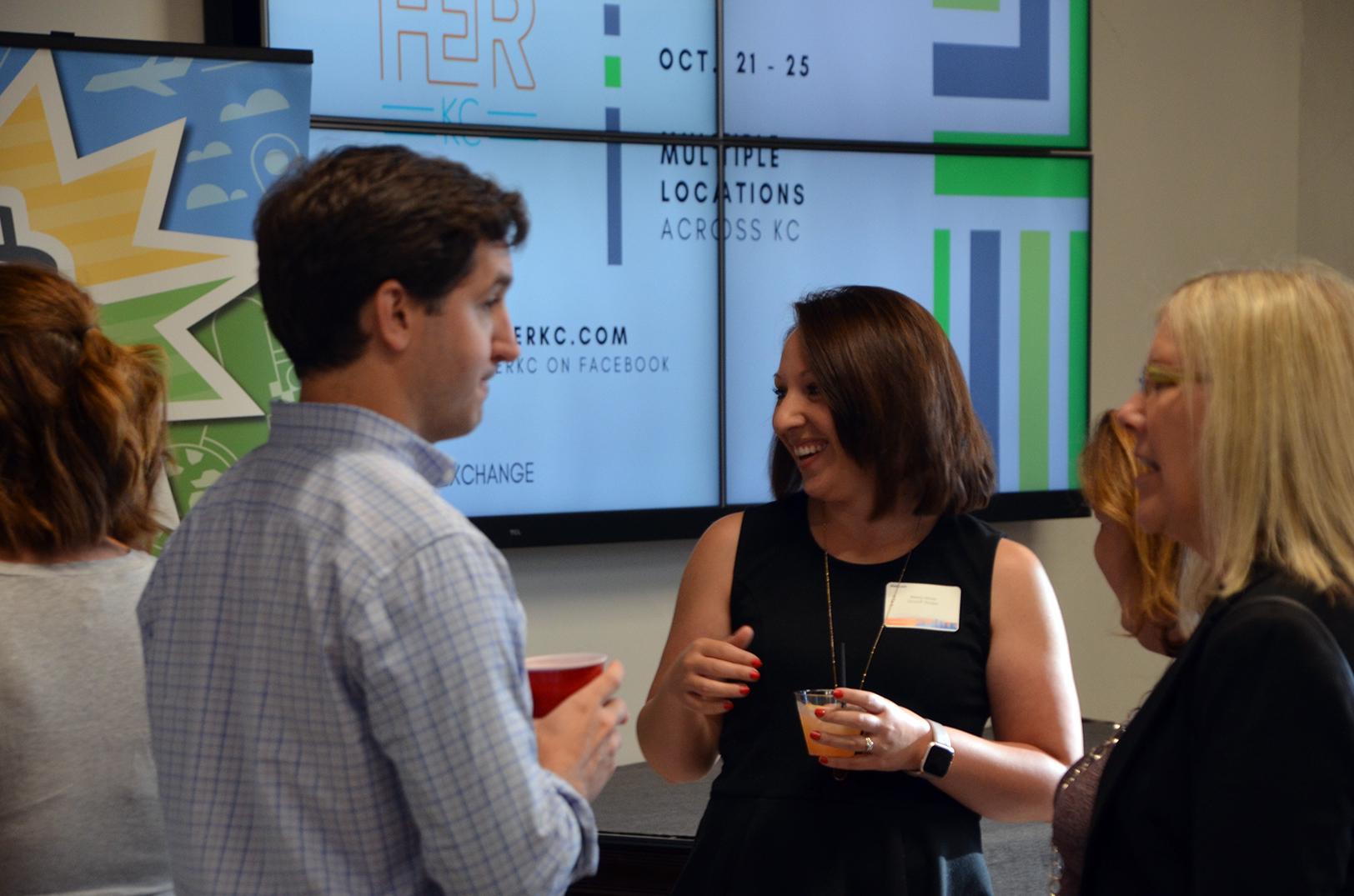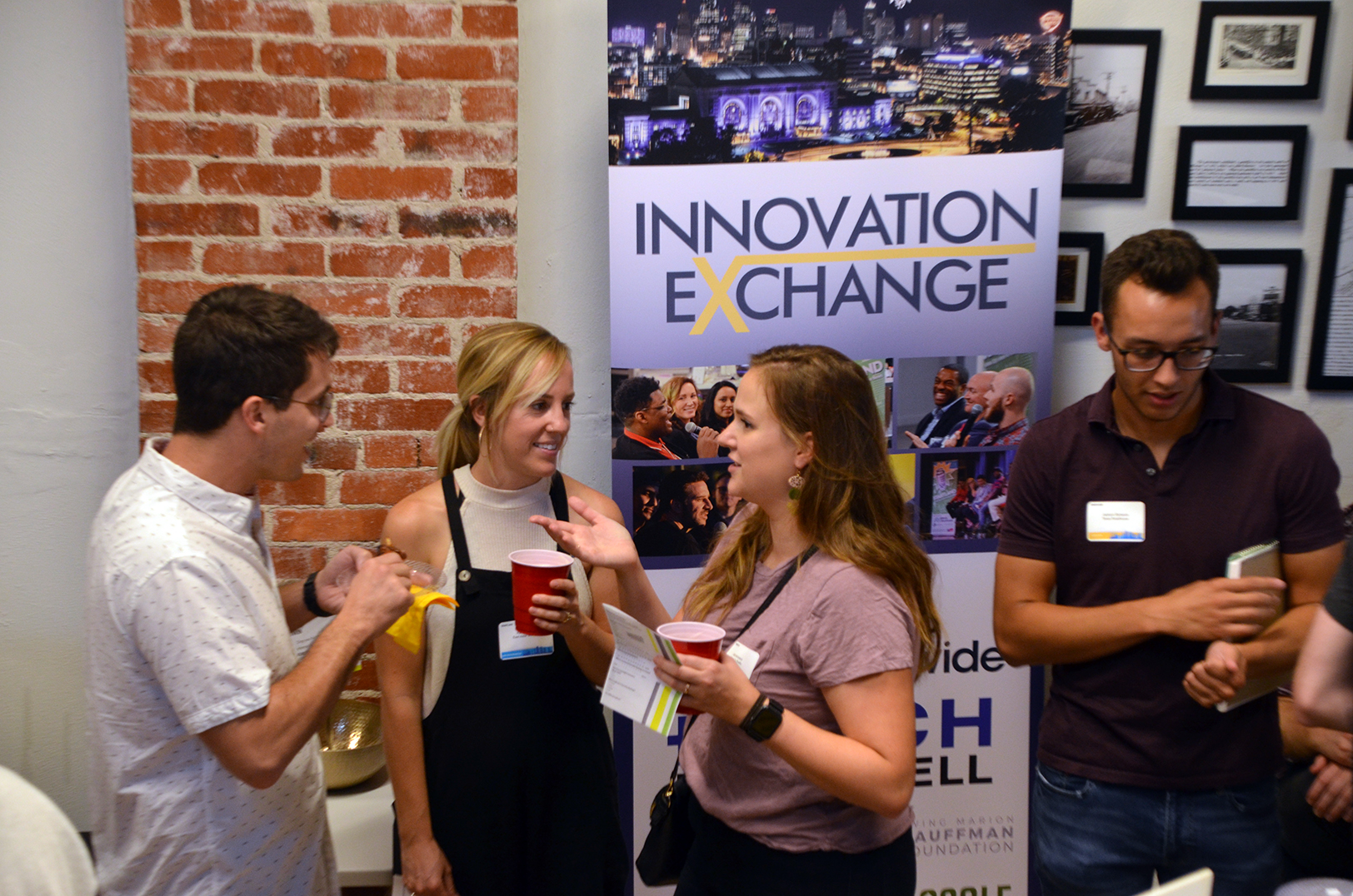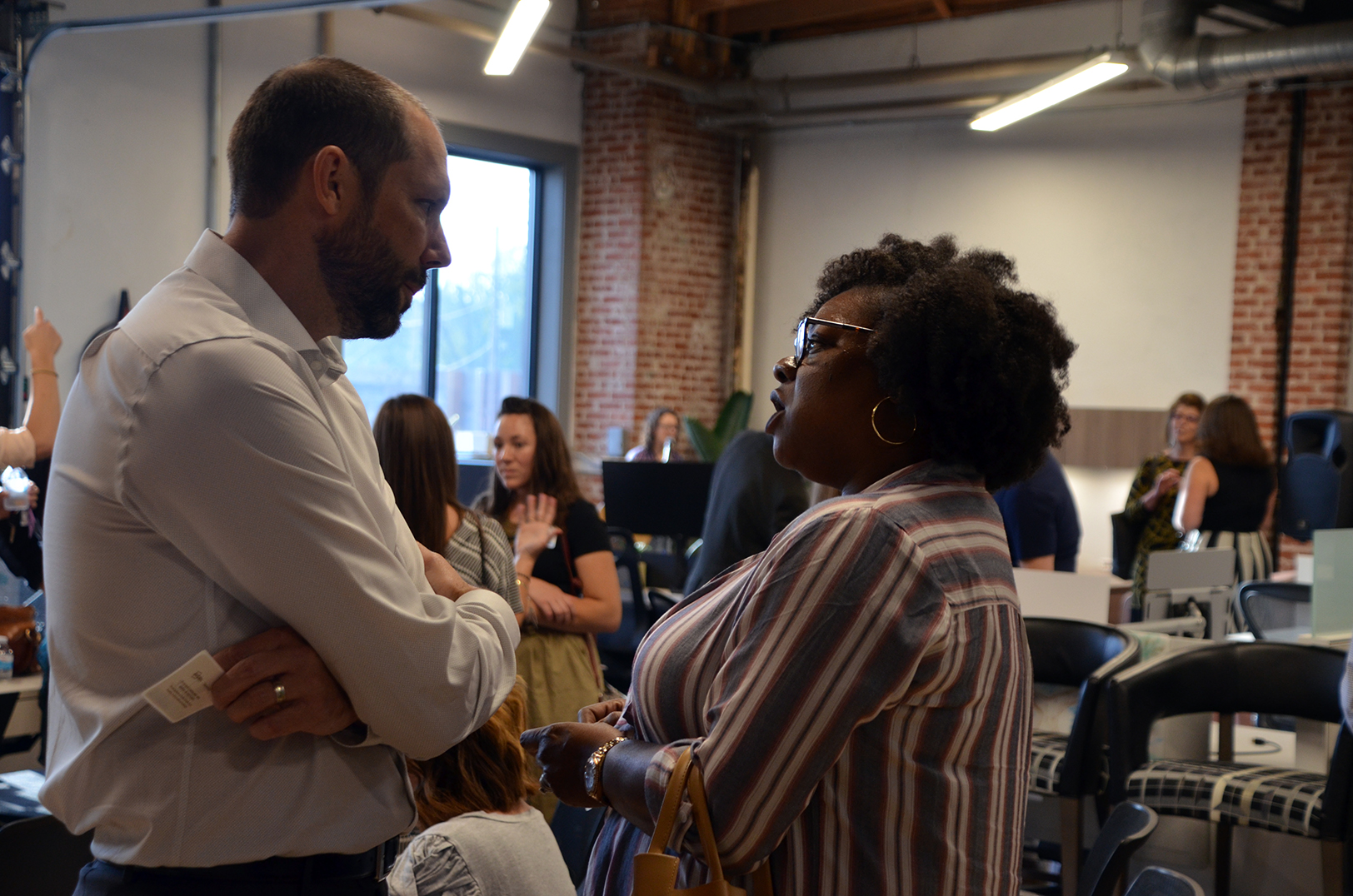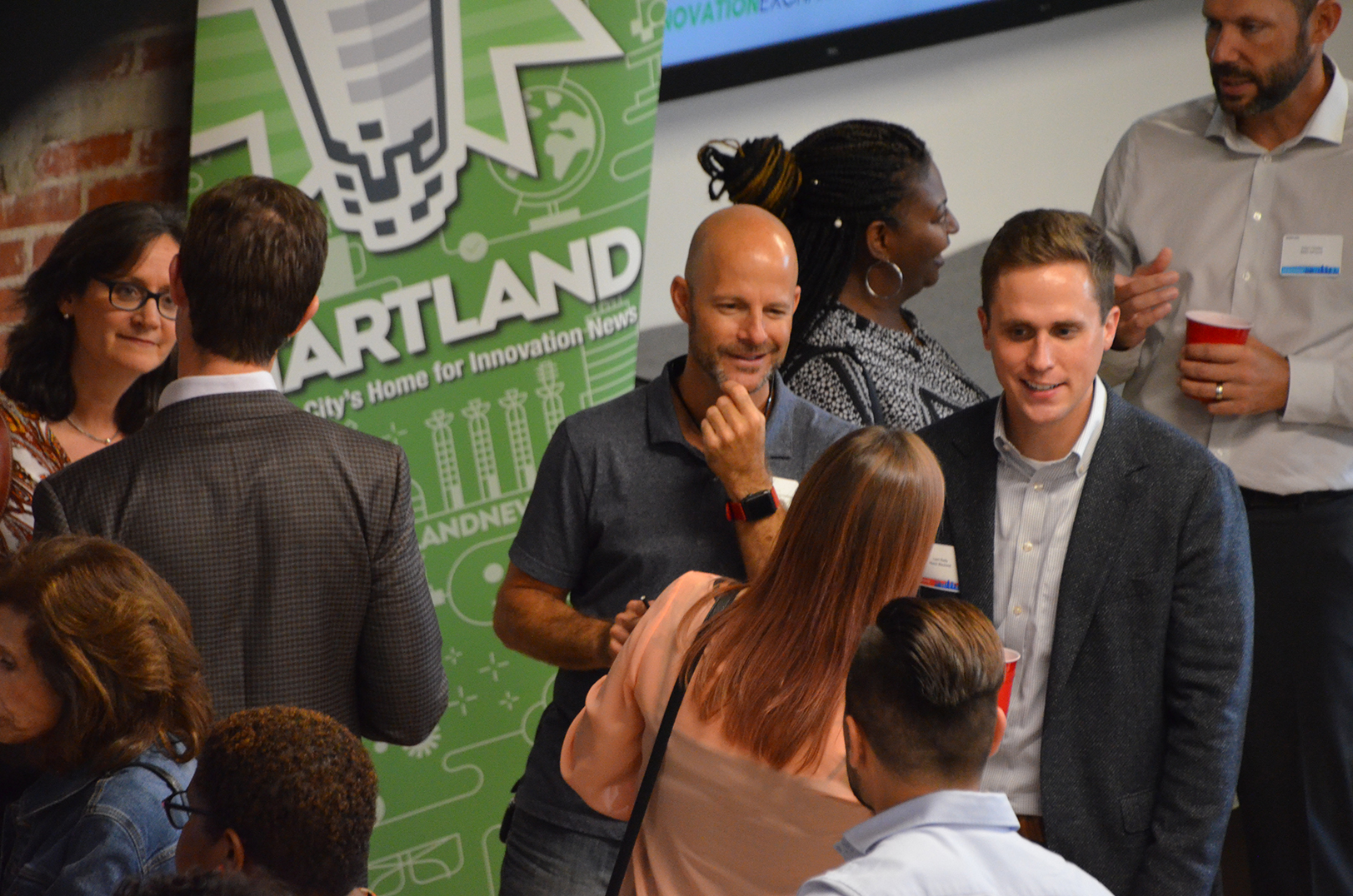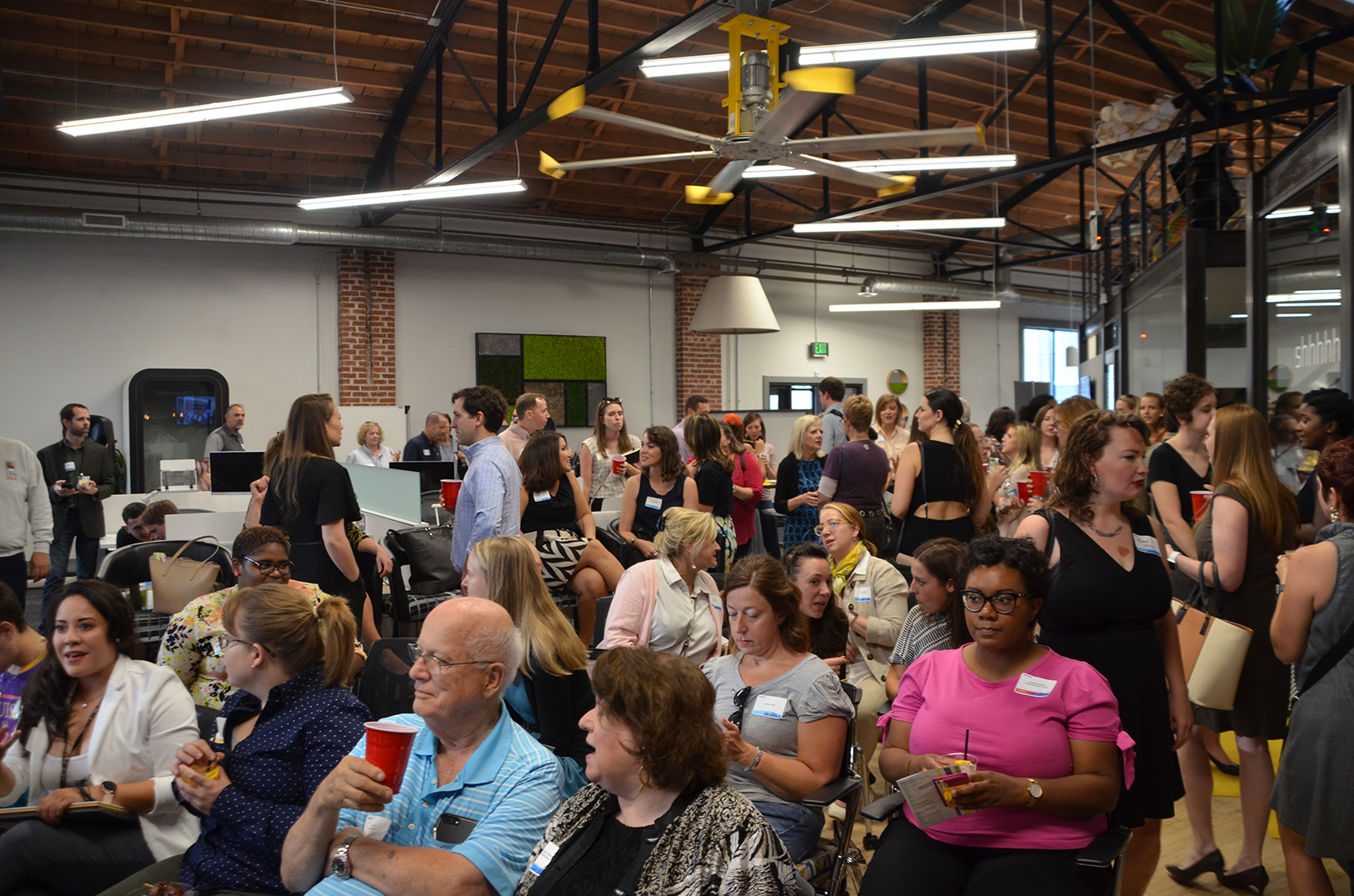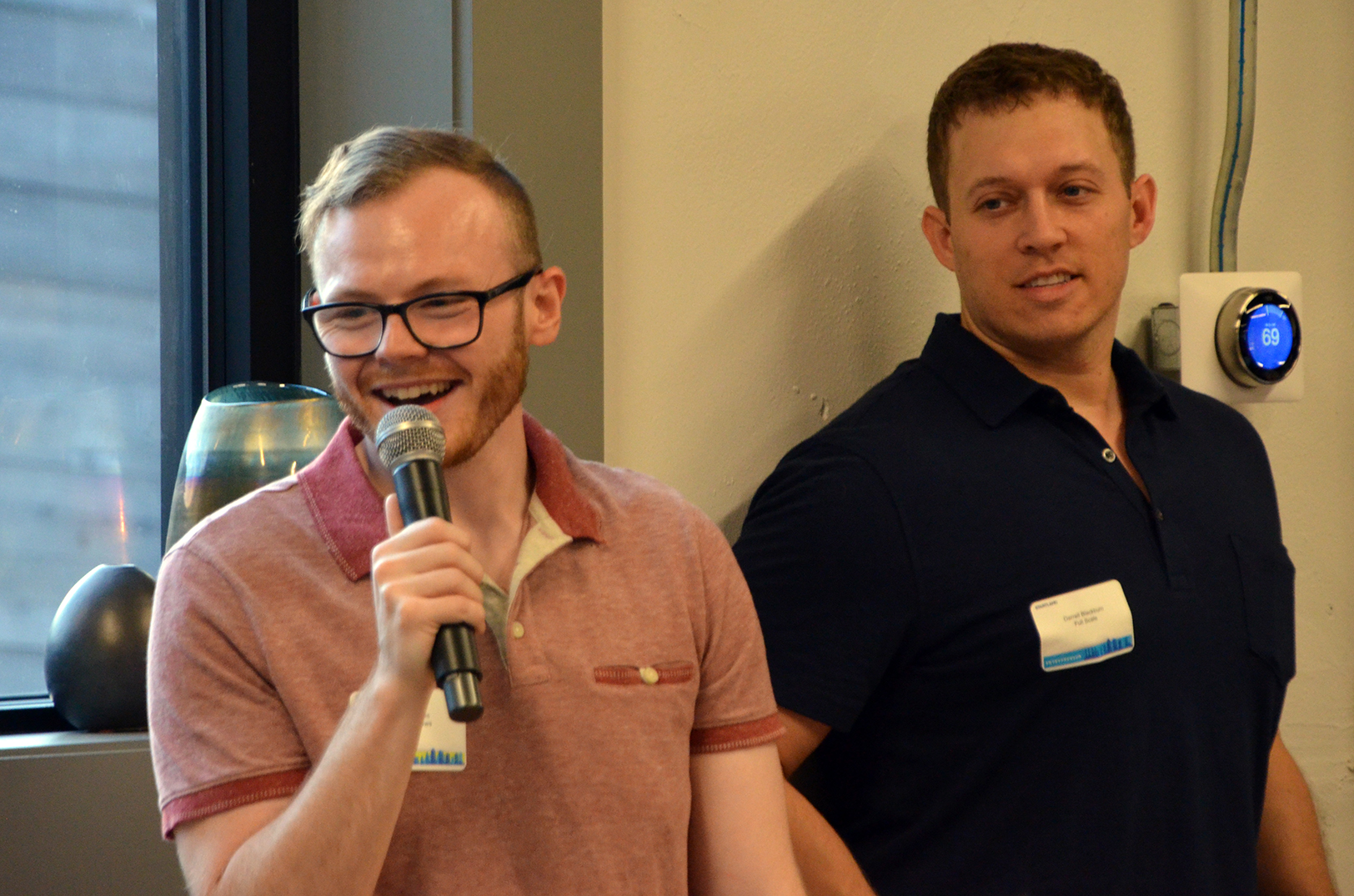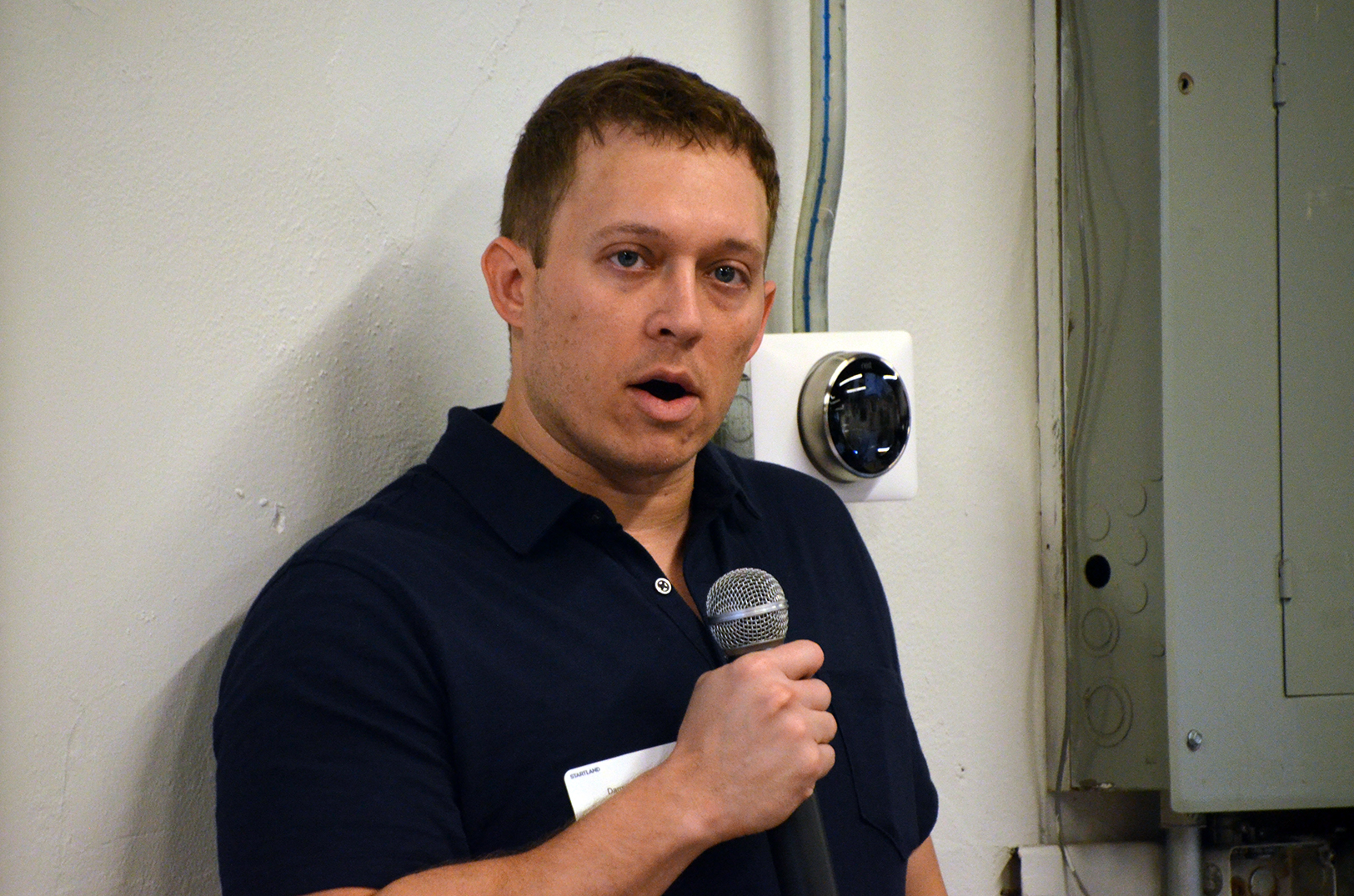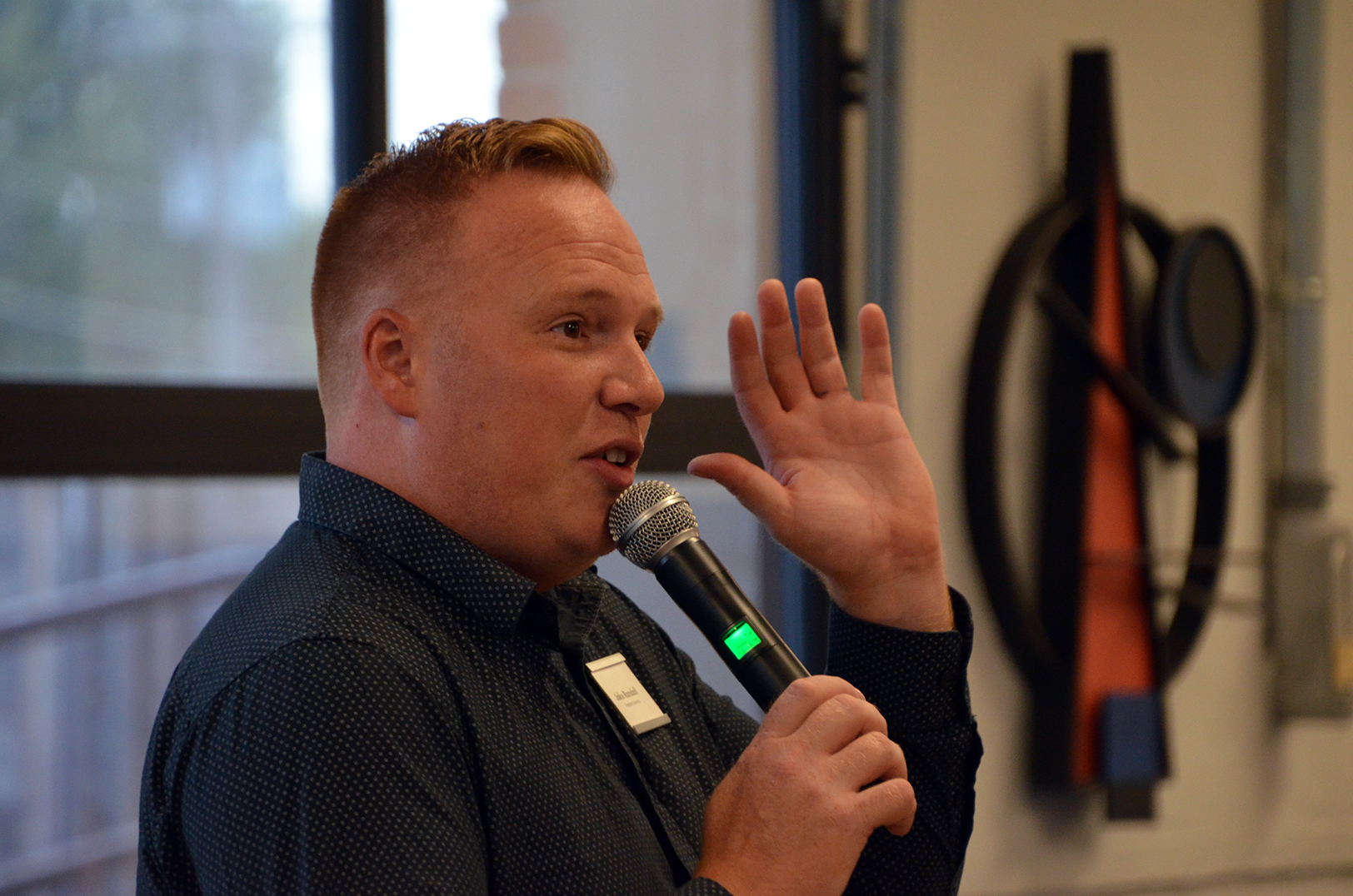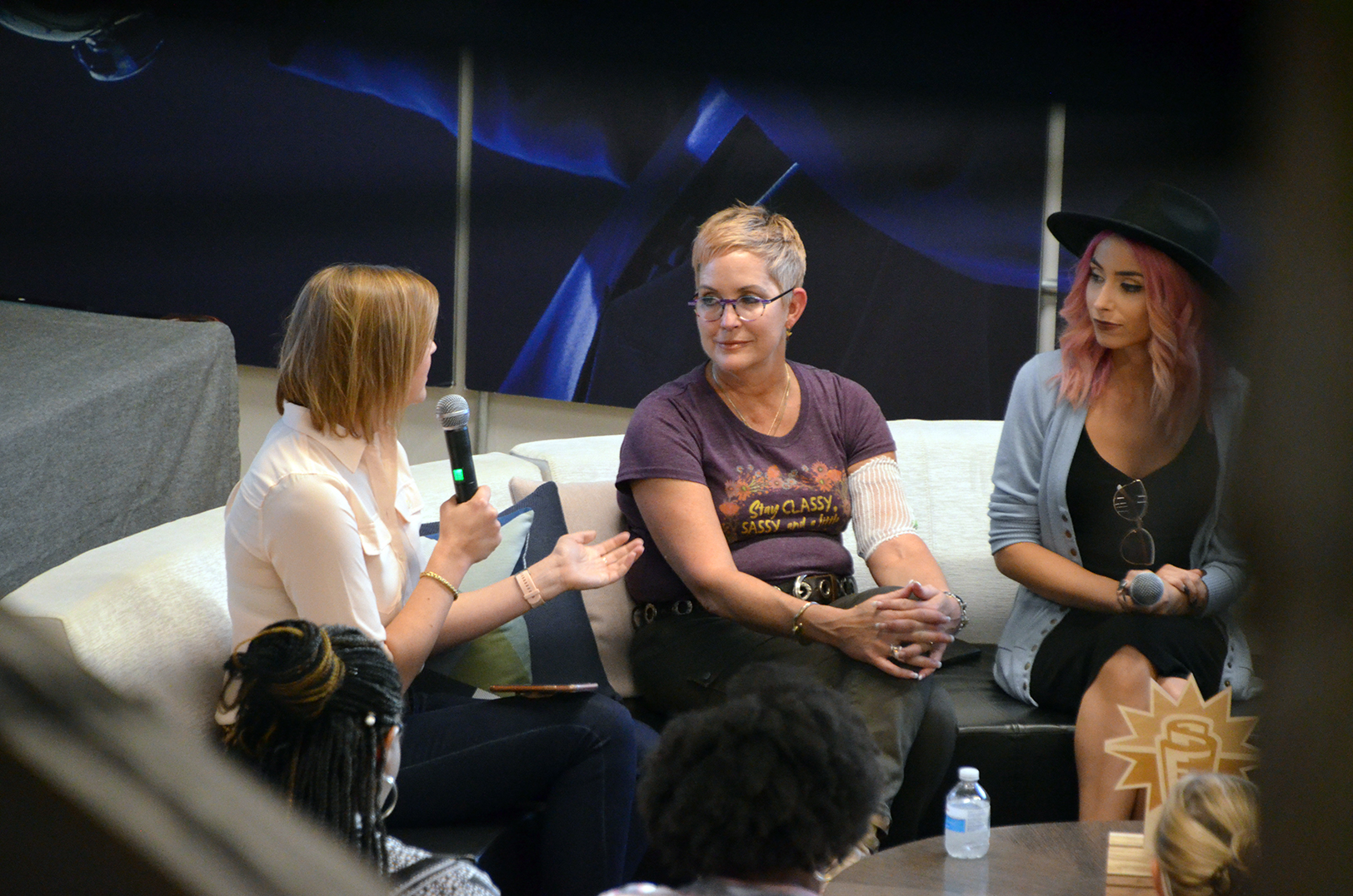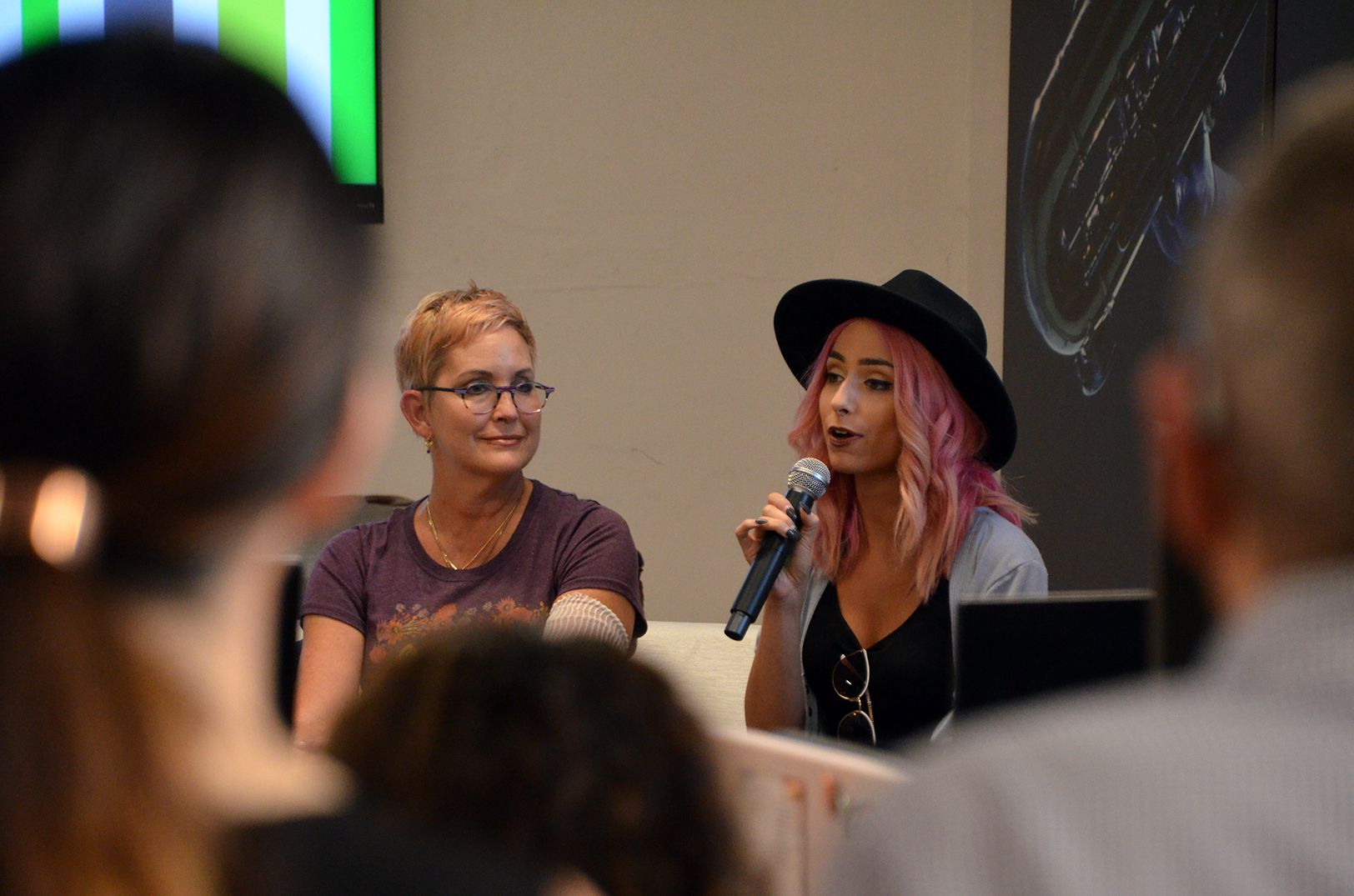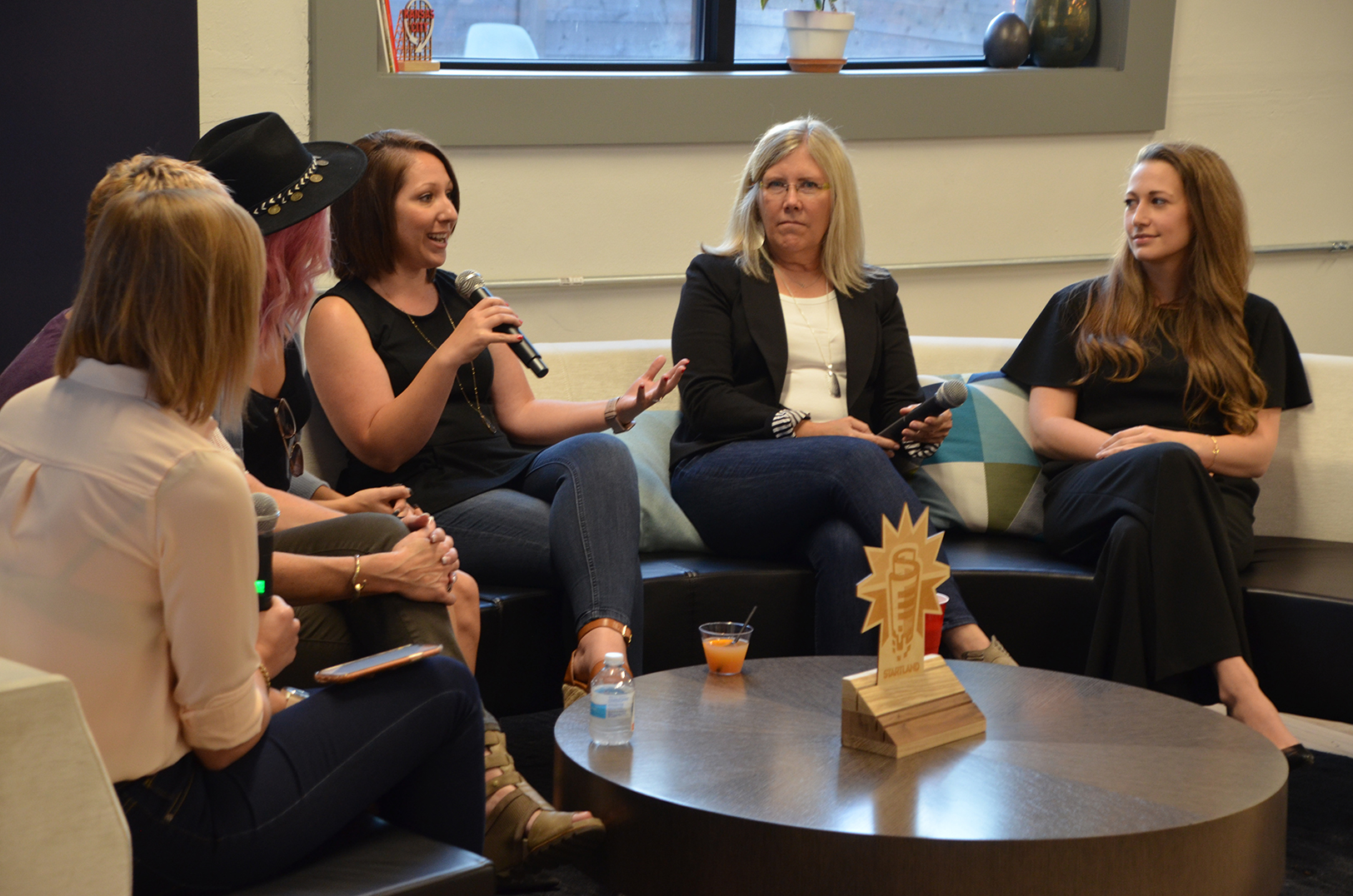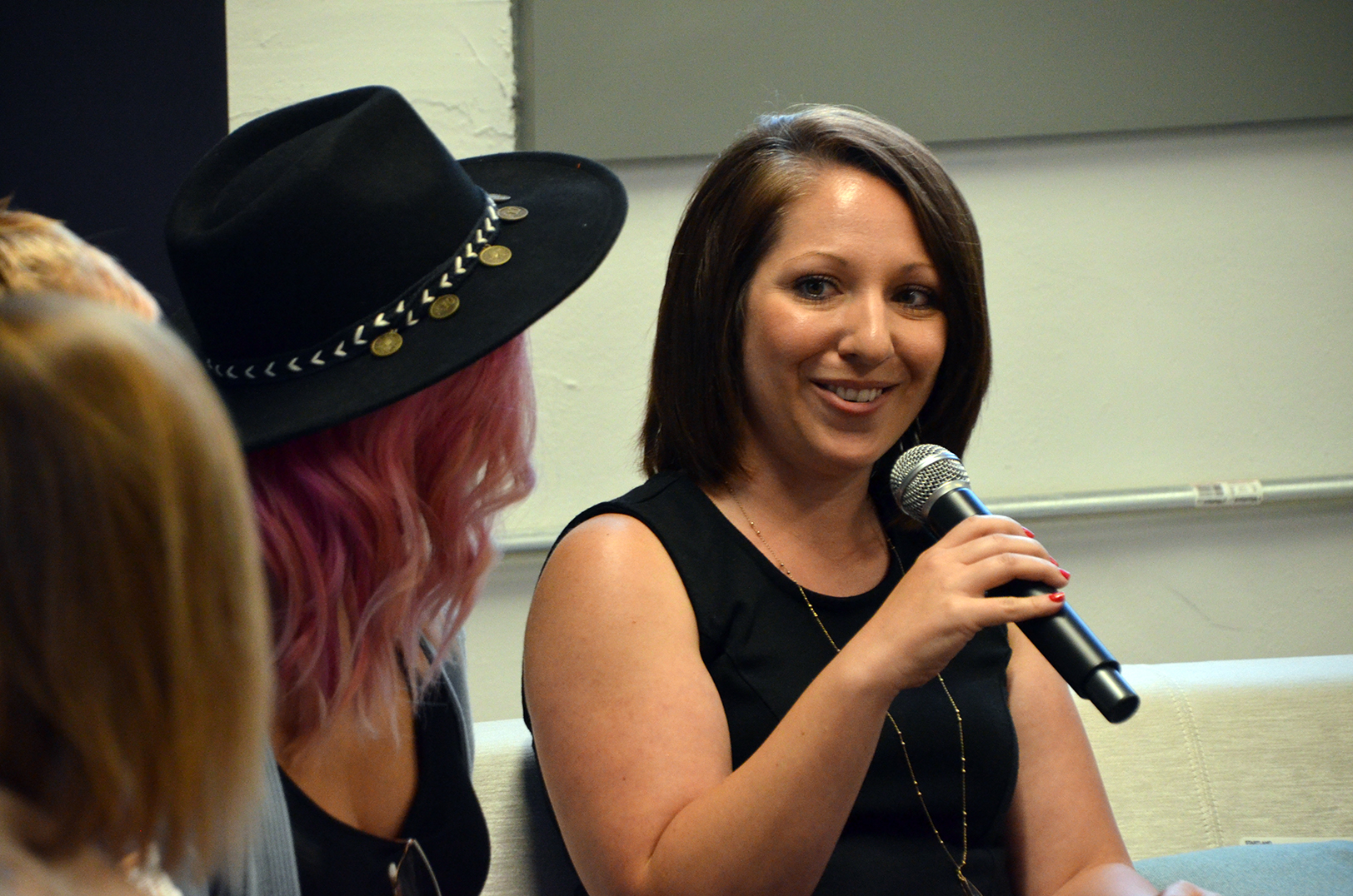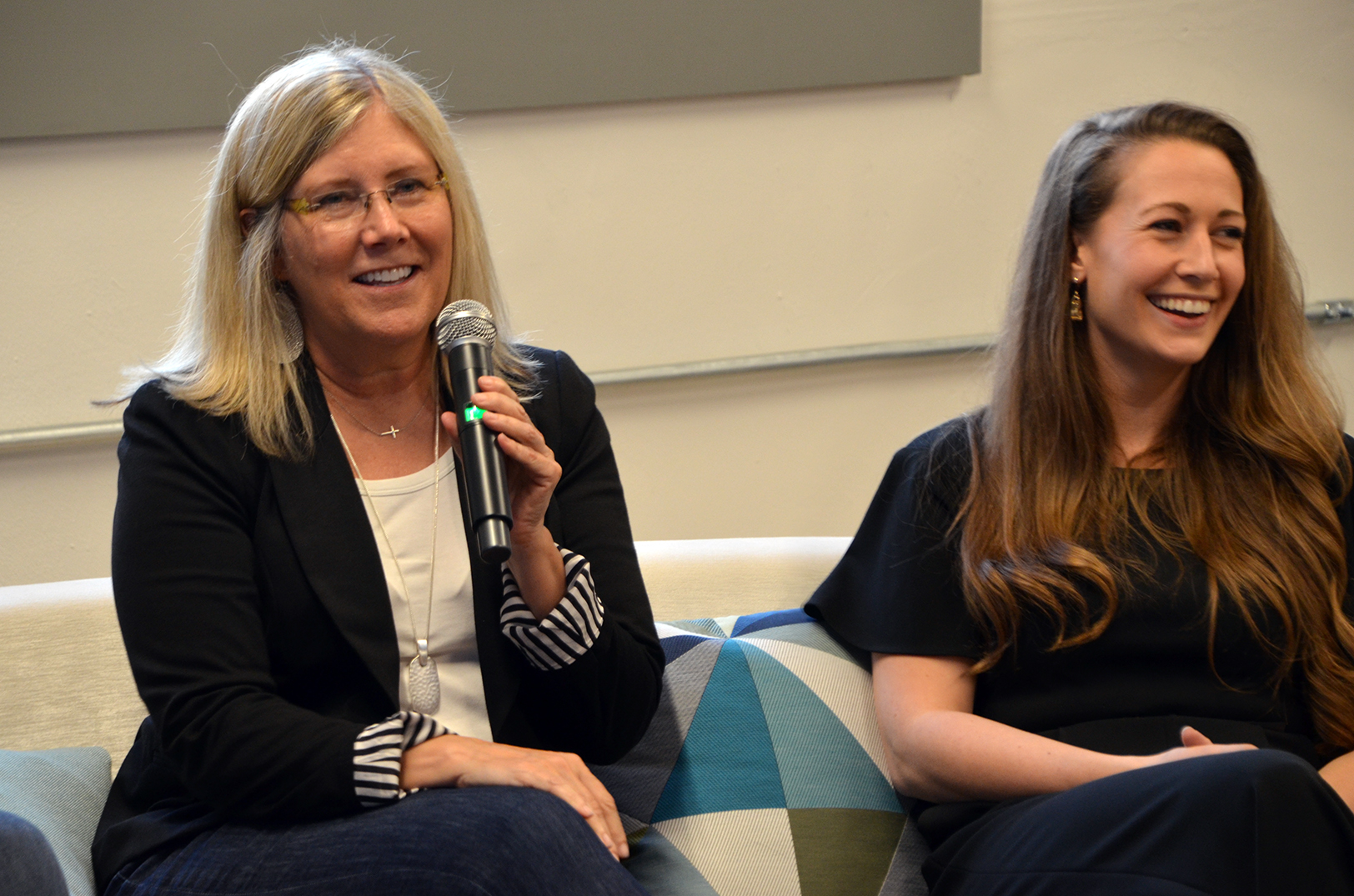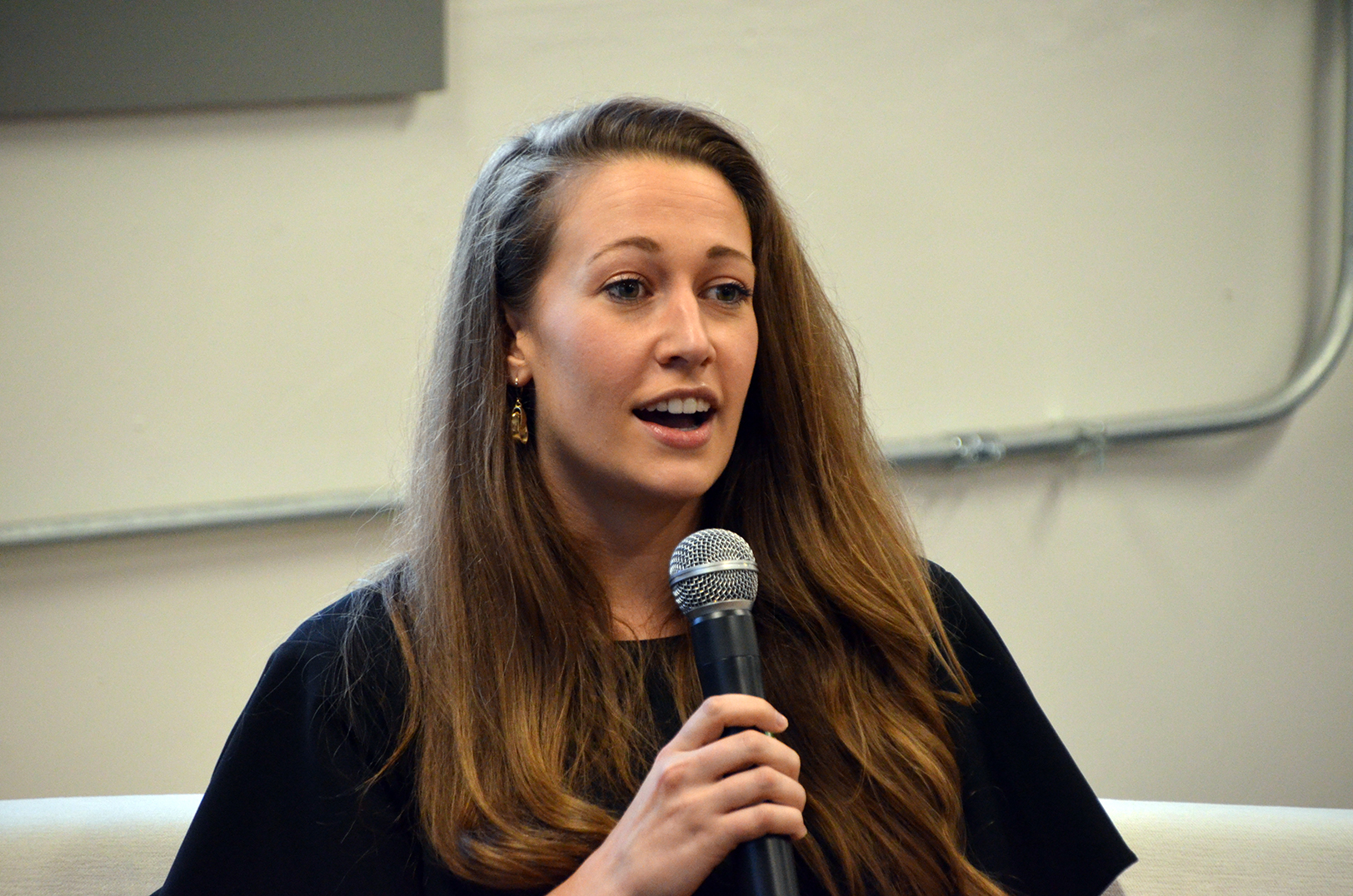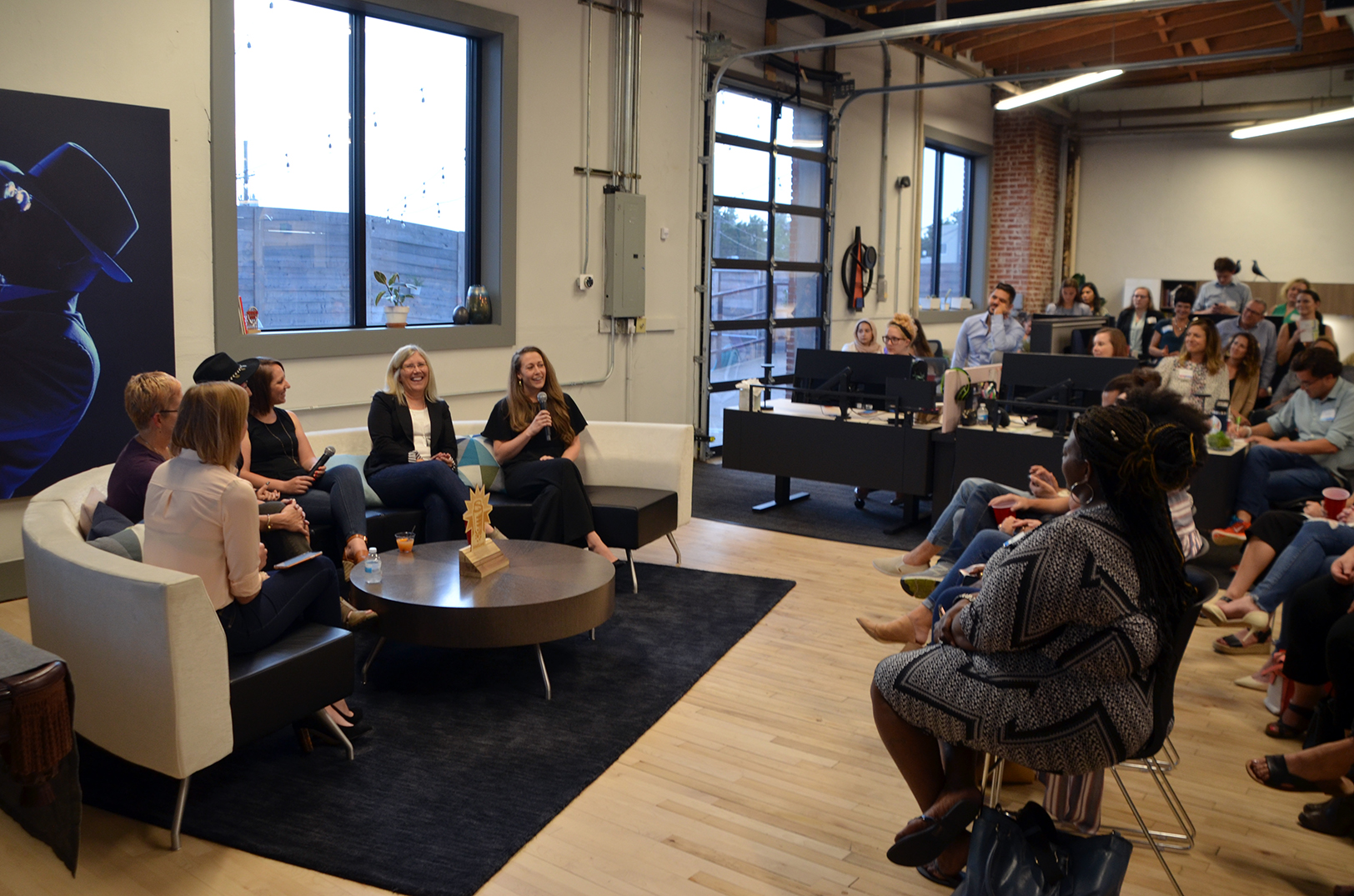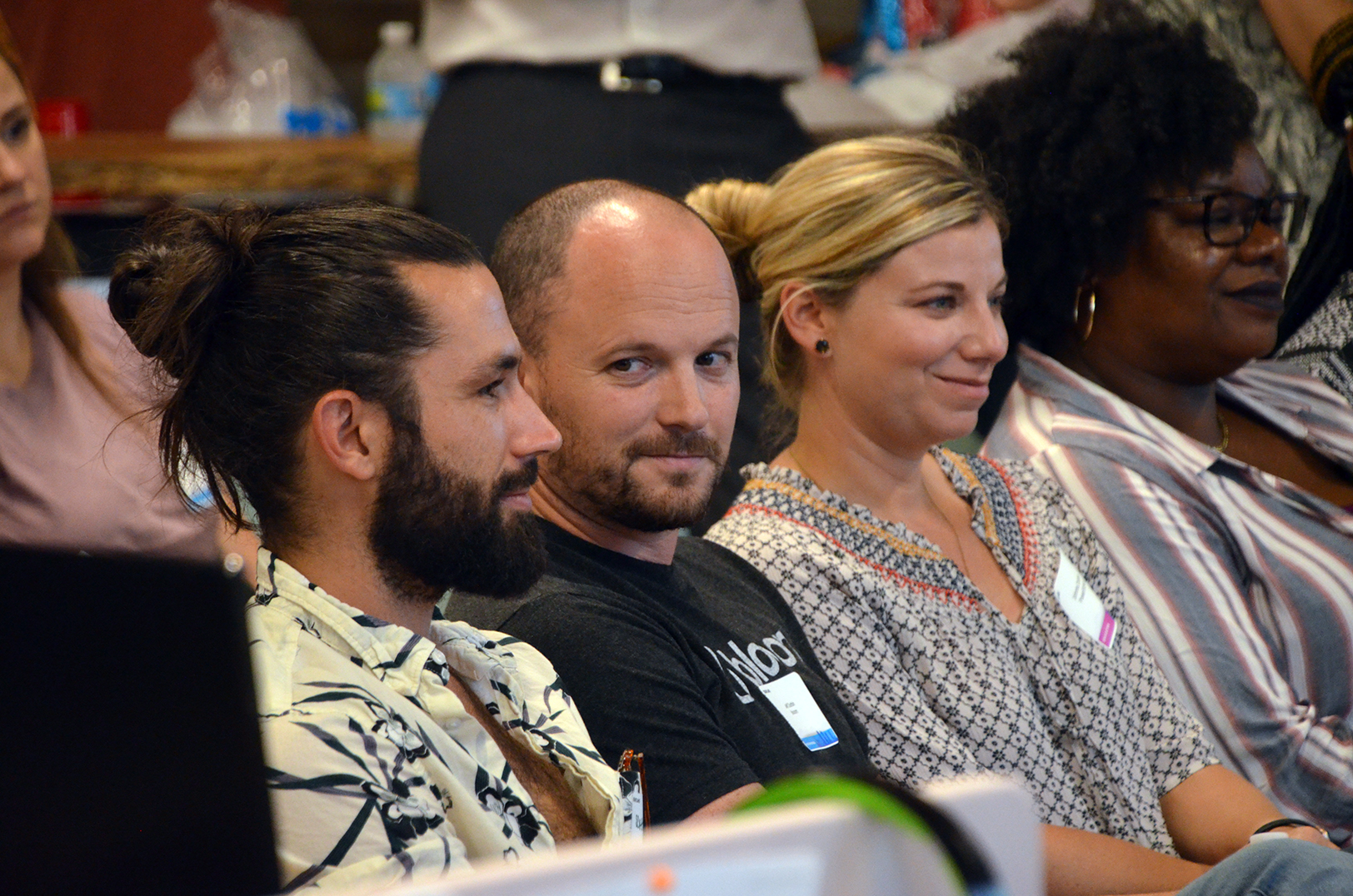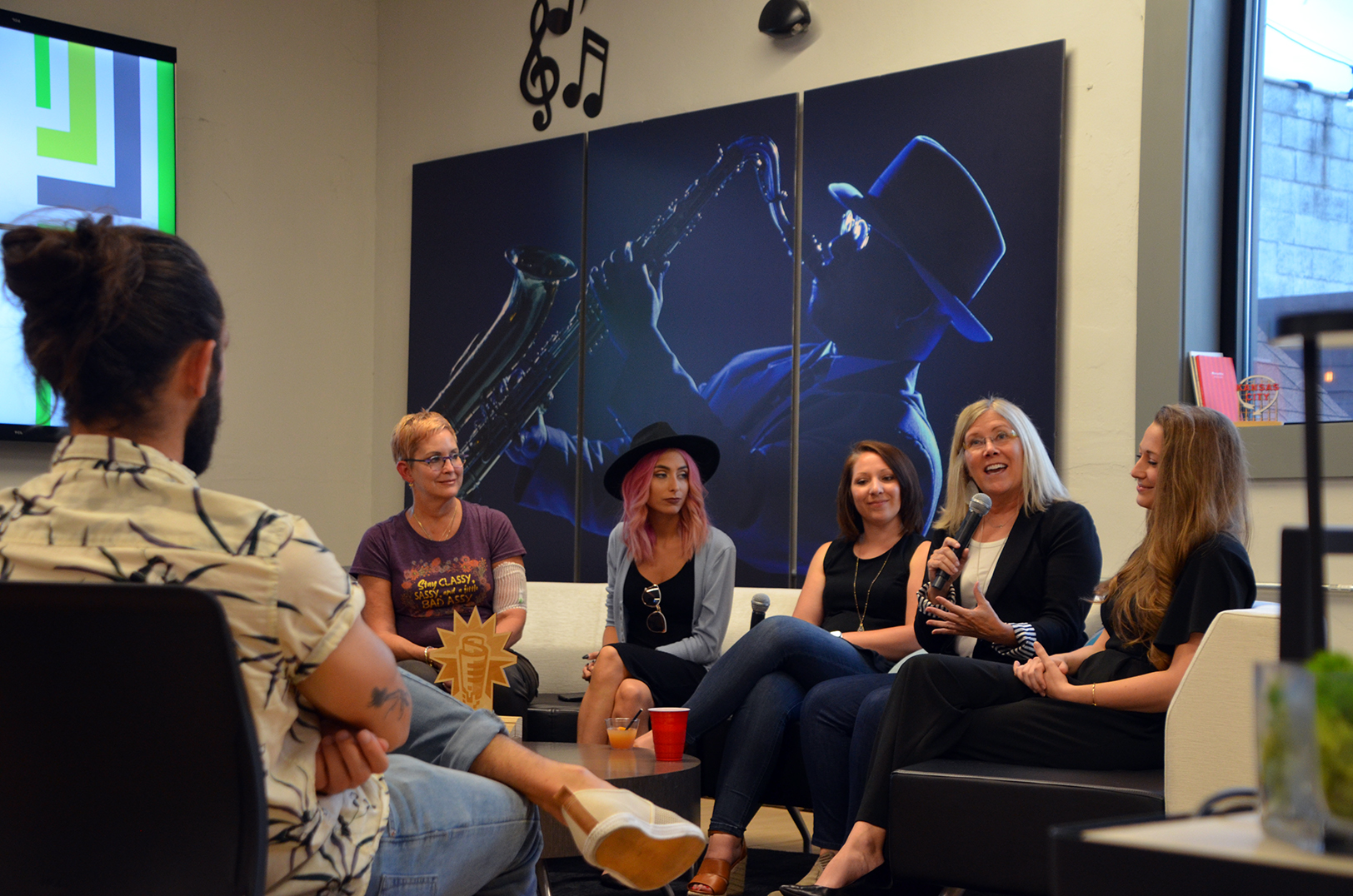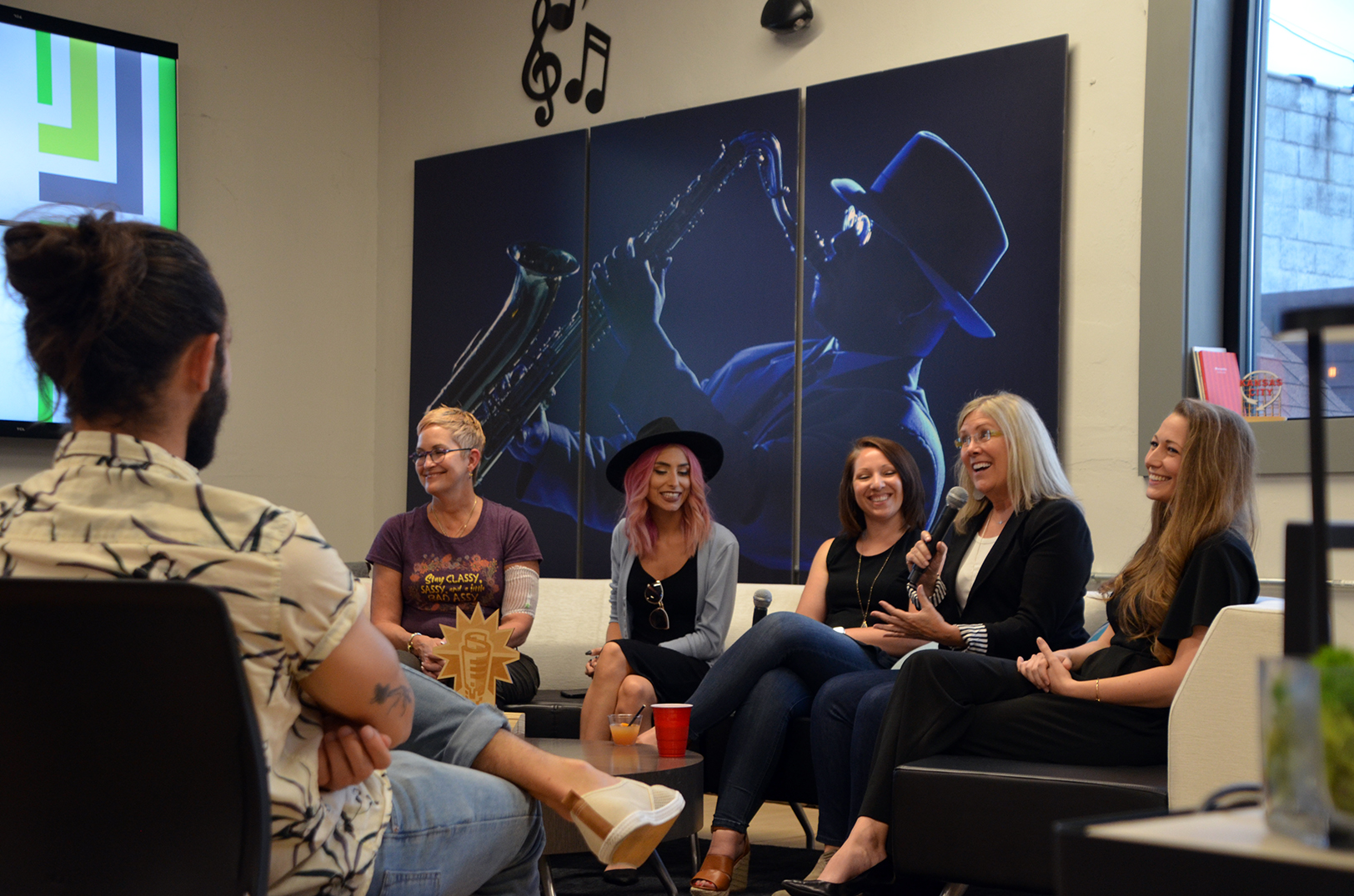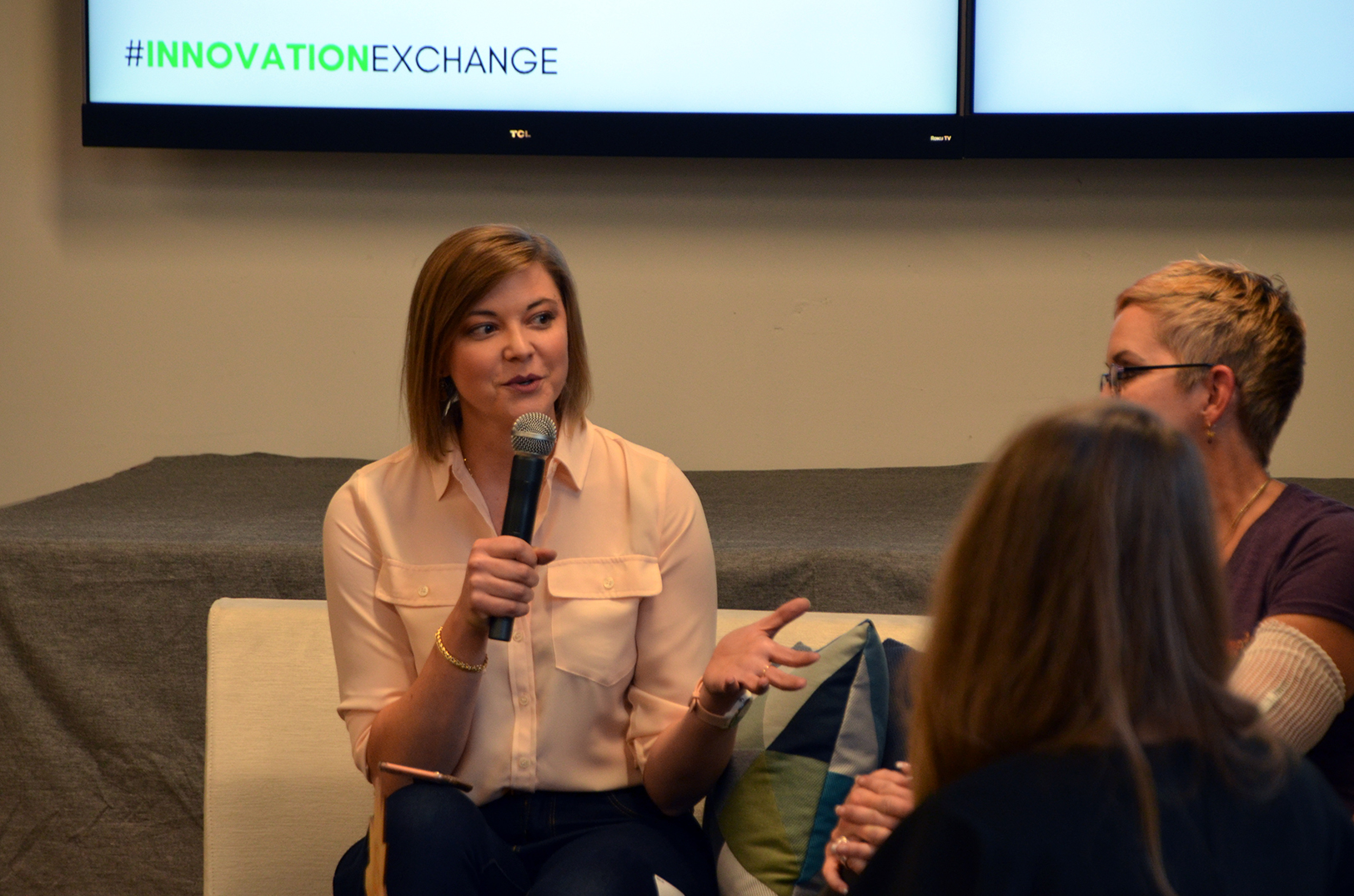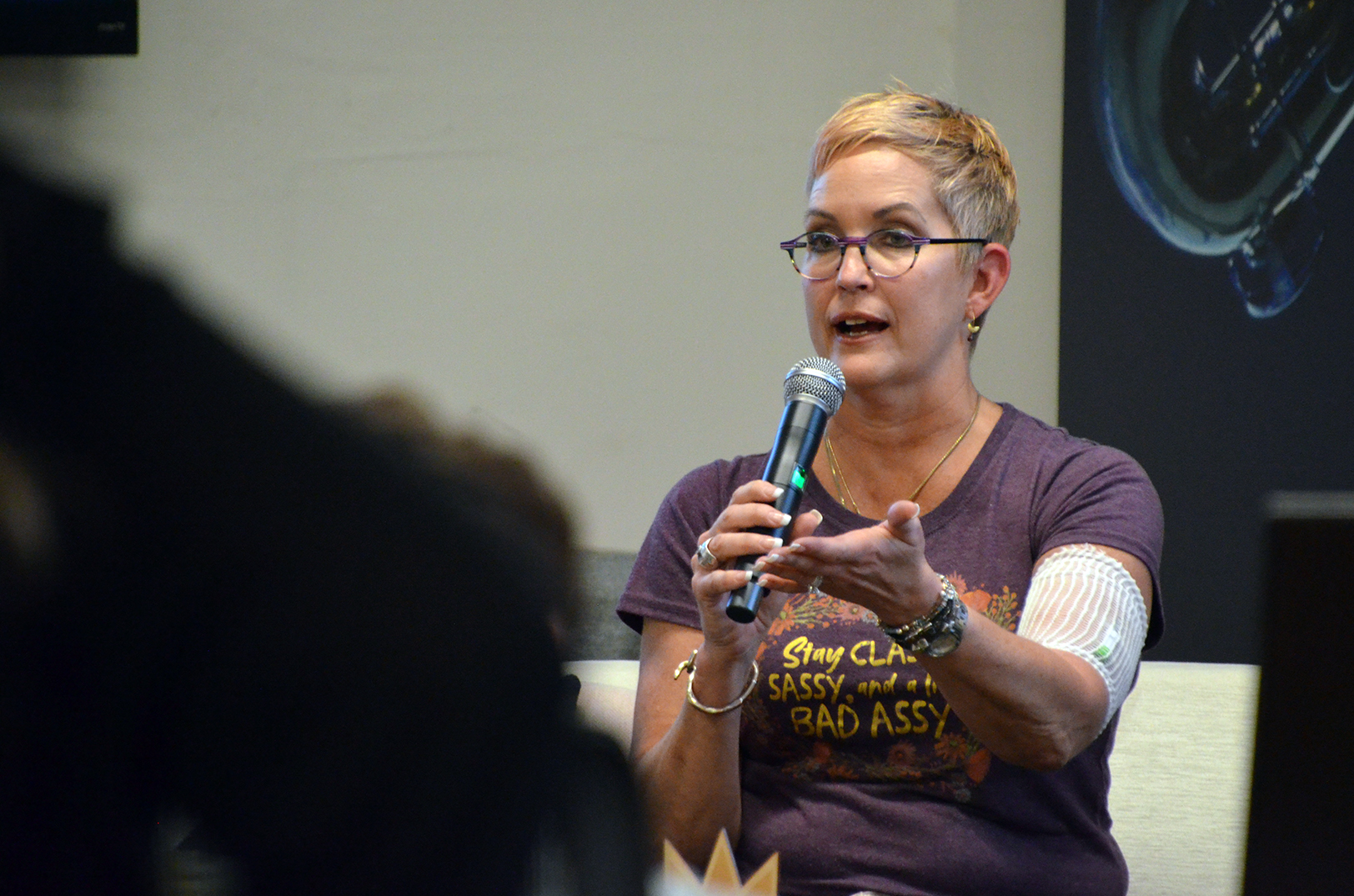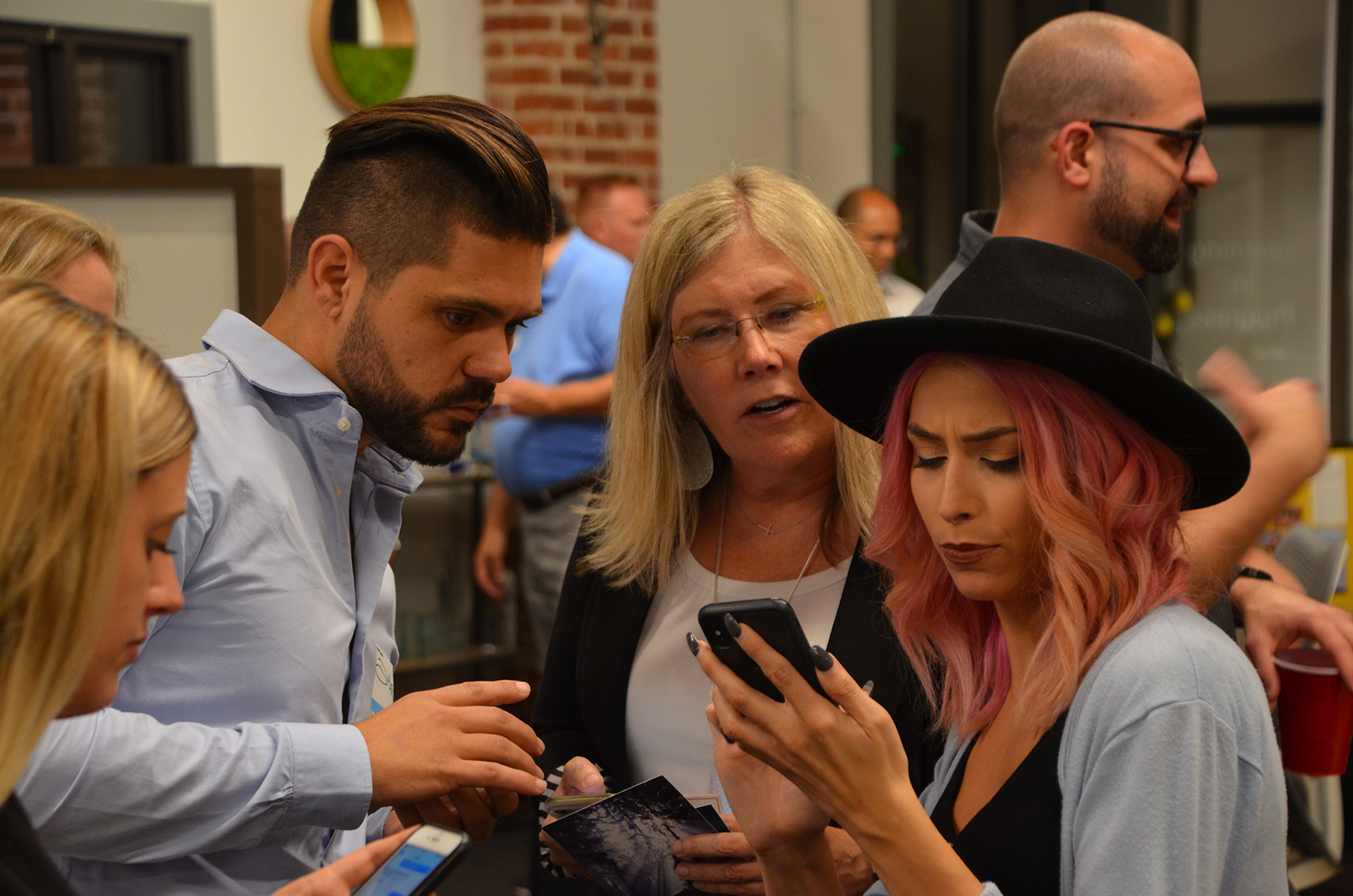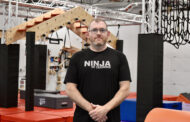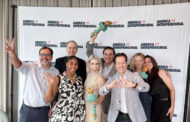Want to rise to the top? Stop limiting yourself to gender roles in the workplace, declared Jene’ Hong.
“I didn’t see people as male or female,” Hong, told a crowd gathered for Startland’s Innovation Exchange: Investing in the Power of Women.
“I started off in accounting — everyone was male. I was taught to curse like a sailor, tell the best dirty joke around and don’t get offended by anything,” she continued, detailing her experience as a working woman on the rise in the late 1980s.
Click here to read more about Hong’s career and role as a UMKC E-Scholars mentor.
“Then I switched to healthcare and, boy, was I in trouble … I was surrounded by women,” Hong said joking, laughter echoing through the rafters of Freedom Interiors.
“I made them cry because I didn’t ask about their dog or their cat or their kids or their boyfriend … I was very direct,” said the founder of Health Wealth Inc.
Seated on a panel that focused on the success of women-led companies in Kansas City, Hong — joined in conversation by Erika Klotz, PopBookings; Lauren Lawrence, Stenovate; Kelly Sievers, Women’s Capital Connection; and Wendy Moore, StoryUP Studios — delivered candid advice in hopes of encouraging women to not be distracted by social narratives that she finds detrimental to their overall success, she explained.
“I’ve been working on some books … and they started before ‘Me Too’ started,” she said, setting the tone for a candid conversation about the impact she’s seen the movement have on women.
“I wasn’t going to address male and female stuff. Then I decided I needed to,” Hong said. “I went to people [who had worked for or with me] and I said, ‘I would like your feedback on what you think made me successful. And one of them said, I quote, ‘You’re tough as balls.’”
A fluid approach to relationship building further set Hong apart as her career evolved, she noted.
“I made people comfortable around me. You didn’t think of me as male or female. It wasn’t about them being male or female. It is about building relationships,” Hong said. “Let’s change the conversation.”

Innovation Exchange at Freedom Interiors
“Classy, sassy and bad assy” — a phrase printed on the T-shirt Hong wore as she spoke and a sentiment she’d like to see the women of Kansas City adopt as they work to build companies that could rival the men-led startups that currently fuel the local ecosystem, she said.
“It’s not about what you have down there,’” she said, gesturing. “Ladies, how many times have we thought, ‘I don’t want to ask someone for a favor or an introduction’? Raise your hand.”
As hands around the room rose, a sly smile came over Hong’s face, validation of her point that women in the workplace must stop being intimidated by their male counterparts and ask them for the things they need to succeed — because most of them wouldn’t hesitate to do so, she said.
“When someone asks me for a favor, I feel great. When you don’t ask me for a favor — you’re taking the chance away from me [to do some good.] So please, ask me for a favor. Ask me for an introduction,” she said.
Further advice for women in business — you can’t do it all by yourself, added Sievers.
“Surround yourself with a few advisors and again, if you can’t do it, bring that expertise in,” whether such perspective be male or female, she continued.
Sage advice for startups in build mode, such pointers don’t quite answer a common question for Kansas City women: Why do many female founders fail, a guest asked the experts panel.
“I could tell you one of [the reasons],” Klotz answered. “We were actually part of an accelerator program and not a lot of the [startups] are around today. … I could probably name exactly why each one of them went under, but one of the main reasons was the founders weren’t coachable.”
Although every piece of advice isn’t necessarily right, being receptive to feedback is vital to a startup founder’s success, she continued.
“You gotta massage your instincts, right? You have to really say, ‘Does this feel right? Does it sound right?’ … If those two brains connect — the gut and the actual brain — then it’s probably something to go and really explore.”
Such a reaction stems from another common problem among founders: ego, Hong added.
“Ego’s fake. Confidence is real. Ego is what causes someone to not listen to anybody. They can’t listen, they can’t hear,” she said. “I’ve turned people in for bank fraud, SEC fraud, embezzlement — many times. It’s always the same thing. Ego makes them do it.”
Check out a photo gallery from the September Innovation Exchange event at Freedom Interiors, sponsored by Full Scale.
This story is possible thanks to support from the Ewing Marion Kauffman Foundation, a private, nonpartisan foundation that works together with communities in education and entrepreneurship to create uncommon solutions and empower people to shape their futures and be successful.
For more information, visit www.kauffman.org and connect at www.twitter.com/kauffmanfdn and www.facebook.com/kauffmanfdn



